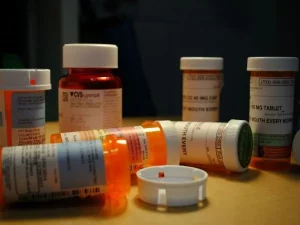Introduction In the relentless fight against the US opioid epidemic, doctors find themselves confronted by a significant obstacle—insurance barriers impeding effective treatment. Dr. Sarah Anderson, an addiction medicine specialist, provides insights into the challenges healthcare professionals face, the impact on patients, and potential solutions to overcome these barriers and enhance access to crucial opioid addiction
Introduction
In the relentless fight against the US opioid epidemic, doctors find themselves confronted by a significant obstacle—insurance barriers impeding effective treatment. Dr. Sarah Anderson, an addiction medicine specialist, provides insights into the challenges healthcare professionals face, the impact on patients, and potential solutions to overcome these barriers and enhance access to crucial opioid addiction treatment.
1. Treatment Accessibility Challenges: Unraveling the Insurance Barrier
The article begins by unraveling the specific challenges doctors encounter in providing effective opioid addiction treatment due to insurance barriers. Dr. Anderson dissects the complexities that hinder accessibility to essential treatments, examining how insurance limitations impact the ability to deliver comprehensive care. This section aims to provide readers with a comprehensive understanding of the circumstances surrounding the battle against the opioid epidemic.
2. Medication-Assisted Treatment (MAT) and Insurance Restrictions: A Struggle for Authorization
Doctors often prescribe Medication-Assisted Treatment (MAT) to support individuals in their recovery journey. Dr. Anderson explores the hurdles doctors face in obtaining insurance authorization for MAT, shedding light on the impact of delays and denials on patients seeking evidence-based addiction treatment. This section aims to highlight the challenges within the intersection of medical practice and insurance policies.
3. Prior Authorization Burdens: Delays in Urgently Needed Treatment

This image is taken from google.com
The prior authorization process proves to be a significant hurdle in the timely delivery of opioid addiction treatment. Dr. Anderson delves into the burdens imposed by prior authorization requirements, particularly when urgency is paramount in addiction treatment. This section aims to guide readers in understanding how administrative processes can impede critical care.
4. Inadequate Coverage for Counseling Services: A Gap in Holistic Care
Comprehensive care for opioid addiction often includes counseling services, yet insurance coverage gaps in this domain pose challenges. Dr. Anderson discusses how inadequate coverage for counseling services creates a gap in holistic addiction treatment, impacting the overall effectiveness of patient care. This section aims to highlight the importance of addressing both medical and psychological aspects of addiction.
5. Impact on Patient Outcomes: Recognizing the Human Toll
The article explores the real-world impact of insurance barriers on patient outcomes. Dr. Anderson assesses how these hurdles contribute to delayed or insufficient treatment, exacerbating the challenges faced by individuals seeking recovery from opioid addiction. This section aims to convey the human toll of systemic barriers in addiction healthcare.
6. Advocating for Policy Changes: Solutions to Enhance Treatment Access
In the face of these challenges, potential solutions lie in advocating for policy changes. Dr. Anderson discusses the importance of policy adjustments to streamline insurance processes, reduce authorization barriers, and enhance the overall landscape of addiction treatment accessibility. This section aims to empower readers with insights into potential solutions to address systemic issues.
Expert Commentary: Dr. Sarah Anderson
Integrating expert commentary, the article features insights from Dr. Anderson. Her analysis goes beyond the immediate challenges, providing a deeper understanding of the intricacies involved in addressing the US opioid epidemic. Dr. Anderson offers expert perspectives on the intersection of addiction medicine, insurance hurdles, and the urgent need for policy changes.
Conclusion
In conclusion, the article summarizes the key points discussed, emphasizing the challenges doctors face in the battle against the US opioid epidemic due to insurance barriers. It encourages readers to stay informed about ongoing efforts to improve addiction treatment accessibility and consider the expert analysis provided by Dr. Sarah Anderson.
















